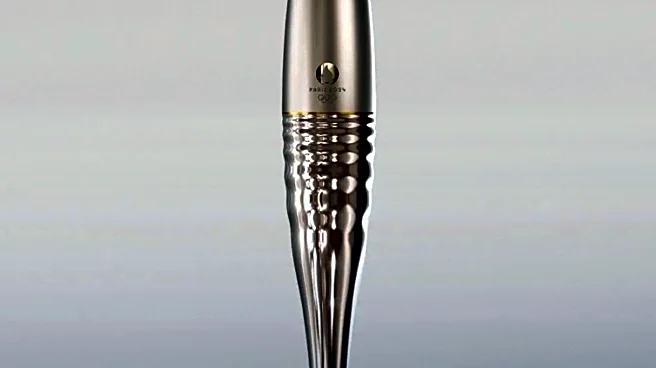What's Happening?
Onkos Surgical, a company specializing in innovative solutions for complex orthopedic procedures, has received 510(k) clearance from the U.S. Food and Drug Administration (FDA) for its ELEOS Proximal Tibia
with NanoCept Antibacterial Technology. This clearance marks the first for the NanoCept Antibacterial Technology since its original De Novo authorization in April 2024. The NanoCept technology is designed to combat intraoperative bacterial contamination, a significant advancement in orthopedic implants. Preclinical studies have shown that NanoCept can achieve a 99.999% reduction in bacteria commonly found in operating rooms. The ELEOS Proximal Tibia is part of Onkos Surgical's ELEOS Limb Salvage System, which provides reconstruction options for patients with significant bone loss due to cancer, trauma, or previous surgeries.
Why It's Important?
The FDA clearance of the ELEOS Proximal Tibia with NanoCept Antibacterial Technology is a significant development in the field of orthopedic surgery. It addresses the critical issue of bacterial contamination during surgery, which can lead to severe complications and increased healthcare costs. By reducing the risk of infection, this technology has the potential to improve patient outcomes and reduce the burden on healthcare systems. Surgeons and patients stand to benefit from more successful surgical outcomes and fewer postoperative complications. The clearance also underscores Onkos Surgical's commitment to advancing medical technology and supporting healthcare professionals with innovative solutions.
What's Next?
Following the FDA clearance, Onkos Surgical is expected to expand the use of NanoCept technology across its ELEOS implant system. The company aims to continue supporting surgeons and improving patient care by delivering advanced and differentiated technologies. As the demand for such innovative solutions grows, Onkos Surgical may explore further applications of NanoCept technology in other orthopedic implants and procedures. The company will likely focus on gathering post-market clinical data to validate the effectiveness of NanoCept in reducing infection rates in real-world settings.










